‘Do we have a strategy with China? Yes, energy remains its core’
Alexander Novak has promised to open a second pipeline for gas supplies to China, and Igor Levitin called for expanding the Northern Sea Route
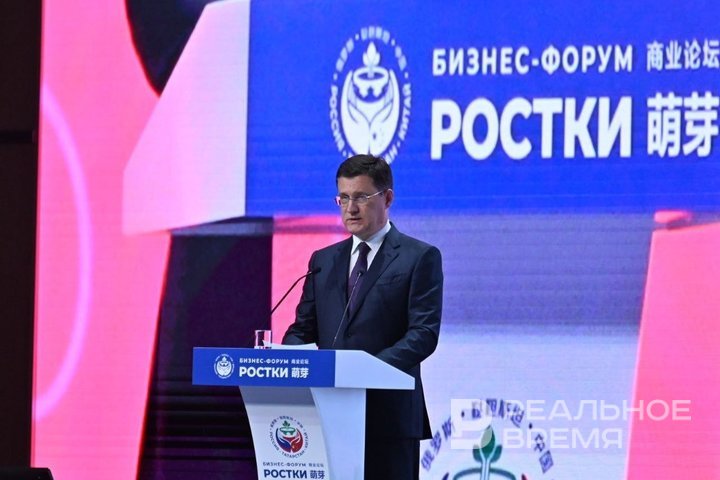
Russia will continue to increase energy exports to China until 2030, Russian Deputy Prime Minister Alexander Novak said at the final meeting of the ROSTCHI: Russia and China — Mutually Beneficial Cooperation international forum in Kazan. Oil, gas, and coal are the basis of Russian-Chinese foreign trade turnover, and the October BRICS summit added fire to the relations between the two powers. The federal authorities announced their readiness to lay a new “Kazakhstani” route to double gas supplies to China, but the shortest but most difficult route to China turned out to be a priority in logistics. Meanwhile, Rustam Minnikhanov and his team are visiting Chengdu, where Huawei, Intel and Dell offices are located.
Novak flew from Moscow, and Vice Governor Jinlin flew through St. Petersburg
The main newsmaker of the plenary session of the international forum ROSTCHI: Russia and China — Mutually Beneficial Cooperation were Deputy Prime Minister of the Russian Federation Alexander Novak, responsible for the development of the Russian oil and gas complex. Until the last moment, it remained unclear whether the chief of the Russian energy industry would fly to Kazan or if urgent matters in Moscow would stop him. But the Chinese agenda, for which the heads of the largest corporations of the People's Republic of China gathered here, prevailed, and Alexander Novak arrived in the capital of the republic just in time for the promised five o'clock and went straight from the plane to the Ilkham Shakirov's hall at Kazan Expo, where the final event of the forum took place.
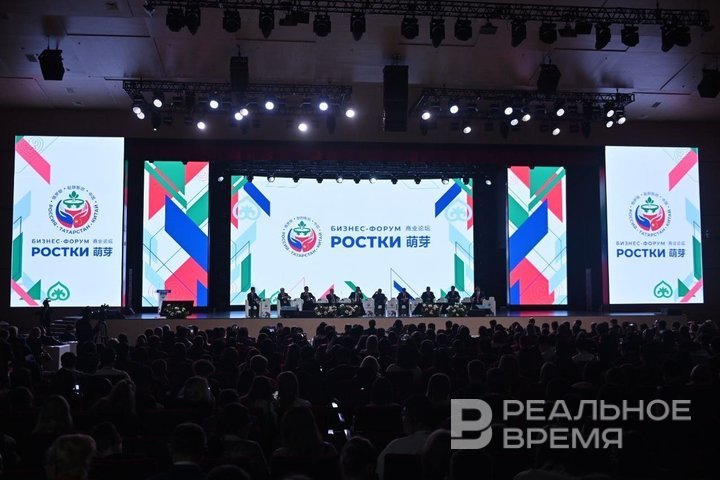
Igor Levitin, the adviser to the president of the Russian Federation and deputy chairman of the Russian Maritime Board, and Pyotr Ivanov, the chairman of the board of directors of the Fesco transport and logistics company, were already waiting for him. The latter carries out the bulk of container traffic from Russia to China.
For the first time, major Chinese officials were present next to them, but for some reason one businessman was not among the honorary row of speakers. Interestingly, the moderator was not Igor Shchugarev, a Russian TV presenter on Rossiya-24, familiar to everyone, but his Chinese colleague. The discussion was entrusted to Wang Delu, the deputy editor-in-chief of the Eurasian Bureau of the Chinese media corporation. He did not hesitate to ask direct questions to the guests. He asked how the Chinese officials got to Kazan, whether there were direct flights.
It turned out that the vice-governor of the eastern province of China, Jilin, had to make a big detour. Lian Renjie first travelled to Tashkent, then to St. Petersburg, and from there flew to Kazan. But this does not mean that there was no direct flight from the east of China to Moscow, he noted diplomatically. “Now it is possible to fly directly to Moscow, I just had a long journey," he said. We should add that currently there is one direct flight from Kazan to Shanghai and back. There is a Chinese airline flying in this direction. But the republican authorities expect that direct flights will appear from other provinces of the People's Republic of China.
But Wang Delu was extremely complimentary towards Rustam Minnikhanov as the host of the event. The latter informed him of a curious historical fact. It turns out that 400 years ago there was a tea route along the Great Silk Road to Kazan. The head of the republic was equally complimentary in return.
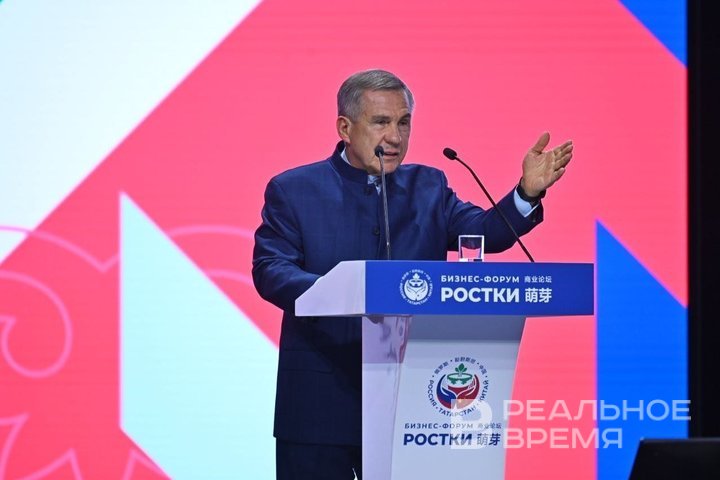
“Nihao, kadyrle duslar!” he greeted them in two languages. According to him, the forum has established itself as a unique platform for strengthening joint projects, including investment projects, mechanical engineering, energy, petrochemistry, agriculture. He said that Kazan honours Chinese traditions and held a sabantuy on dragon boats for the first time last year.
Later he promised that ROSTCHI would be held in August, “when it's warm in Kazan, it's good, the nature is good. After all, China is warmer than ours, and it's not very good to leave the heat for the cold. “When it gets hot in your country, come to us, because it's nice here, and we will be happy to welcome you," he explained the reason for rescheduling the forum to August 18-19.
What do silk threads and steel tracks mean?
Picking up the theme of national peculiarities, Wang Delu suggested guessing a Chinese riddle. “What do silk threads and steel tracks mean in China?” he asked. Igor Levitin, the advisor to the president of the Russian Federation and deputy chairman of the Russian Maritime Board, took up the task without hesitation. He said that silk threads mean highways, and steel threads mean railways. Thanks to this combination, the transport framework ensures the rapid economic development of the People's Republic of China. Let's add that the length of highways in China is 3 times greater than in the Russian Federation, and railways — 2 times (160,000 km versus 80,000 km).
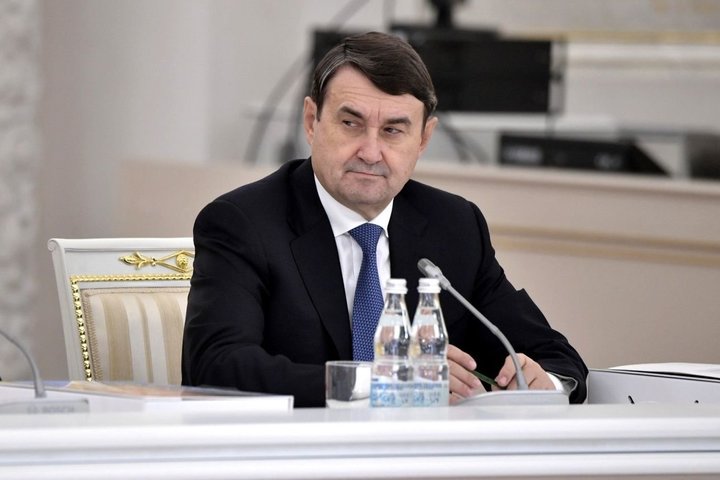
Prior to that, at a special thematic session, Igor Levitin urged Chinese businesses to jointly develop international transport corridors. However, he considers the Northern Sea Route as the shortest and most economical in terms of transportation costs to be a priority. In his opinion, it may be more interesting than the Suez Canal.
“The icebreaker goes from China to Arkhangelsk for 34 days, this is a competitive route," he is convinced. “Now we are rolling out the North-South route. The train goes from the port in Iran to the centre of Russia in 22 days. Moreover, the train stands for 7 days to rearrange the wheels," he said 3 hours before the start of the plenary session, urging the Chinese to unite with the Russian Federation in building tracks.
“We have competitors, we know them all, but we need to be together. The BRICS Summit in Kazan showed once again that if the BRICS countries, which is half of the world's total cargo turnover today, if we work together as a team, we will increase the volume of transportation. We will not compete with each other and give this market to those companies that today do not want to work with Russia or with China or with our other BRICS partners," Levitin explained.
Chinese Jilin asks for coal
Wang Delu skillfully coordinated the speeches of the governors of Chinese provinces, who “competed” with each other, emphasising the superiority of their regions. Thus, the vice-governor of Jilin Province praised the industrial base, claiming that 39 of the 41 sectors of the Chinese economy are concentrated here. For example, over 2 million cars are assembled here. “Chongqing is inferior to Jilin in the automotive industry," he said decisively, after which he “caught” the indignant look of the moderator. Then the representative of Jilin Province suggested that Russia add warmth to bilateral relations, calling for increased coal supplies. The representative of Chongqing was proud that the province is a major logical hub of the People's Republic of China. According to him, from here it is possible to send goods to 400 ports of the world, and suggested using the territory to transport Russian goods around the world.
What if you have a strategy, Mr. Novak?
Then Wang Delu asked Russian Deputy Prime Minister Alexander Novak if Russia had a strategy for developing energy with China. “Yes, we have a strategy, and its core is energy," he replied.
According to him, in October last year, a large strategic programme for the development of trade and economic relations until 2030 was signed. Now energy accounts for a third of the foreign trade turnover between China and the Russian Federation.
Then Alexander Novak cited the figures. Last year, Russia supplied 107 million tonnes, providing 20% of the needs of the Republic of China in these resources. Plus 40 billion of gas. It is transported through the Power of Siberia gas transmission system with a capacity of 38 billion cubic metres.
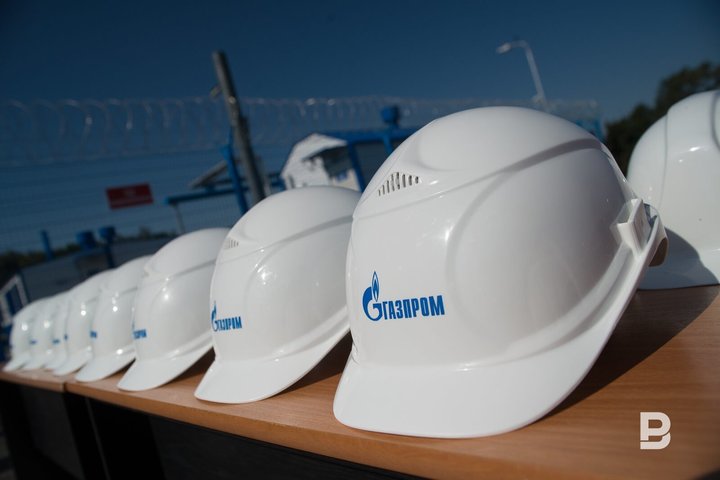
But after the BRICS in Kazan, the Russian Federation and China began to explore the possibility of doubling gas supplies to China. To do this, a new route through Kazakhstan may be laid. “We are potentially considering a new route through Kazakhstan with our Chinese friends, which can also amount to up to 35 billion cubic metres of gas," he said.
Answering questions from Chinese officials, Alexander Novak said that last year Russia supplied about 100 million tonnes of coal, and “this potential has not been exhausted”. “The representative of Jilin Province said that it is necessary to develop projects in the coal industry. I absolutely agree. Despite the climate agenda, coal will remain a strategic resource for growing economies for a long time," he said. And he assured that Russia is ready to increase coal supplies by rail and sea, as well as through border crossings and seaports.
Another important area is joint projects in the field of liquefied natural gas. According to Novak, there are two projects with the participation of Chinese companies. “Supplies are coming to the PRC from Yamal LNG, and we see new joint projects in the field of liquefied natural gas and petrochemistry. A project is being implemented in the Baltic, there is the Amur petrochemical complex of SIBUR, where Chinese companies are shareholders," he listed the points of contact. In the field of electric power industry, Russia is ready to expand cooperation in the field of procurement of electrical equipment.
Alexander Novak also paid attention to China's cooperation with the regions, noting Tatarstan as “an active participant in trade and economic exchanges with the regions of the People's Republic of China”. Rustam Minnikhanov confirmed that he regularly visits China. “This year, the delegation led by me visited Jilin Province and Xinjiang Uygur Autonomous Region, where it took part in the China-Eurasia EXPO. We are planning a visit to Sichuan Province in a few days," the rais of the republic said. The meeting takes place from November 19 to 21, and the place of visit is Chengdu, where Huawei, Intel and Dell offices are located. Time will tell whether agreements will be signed.